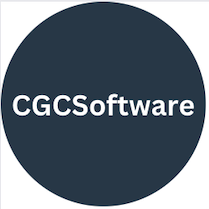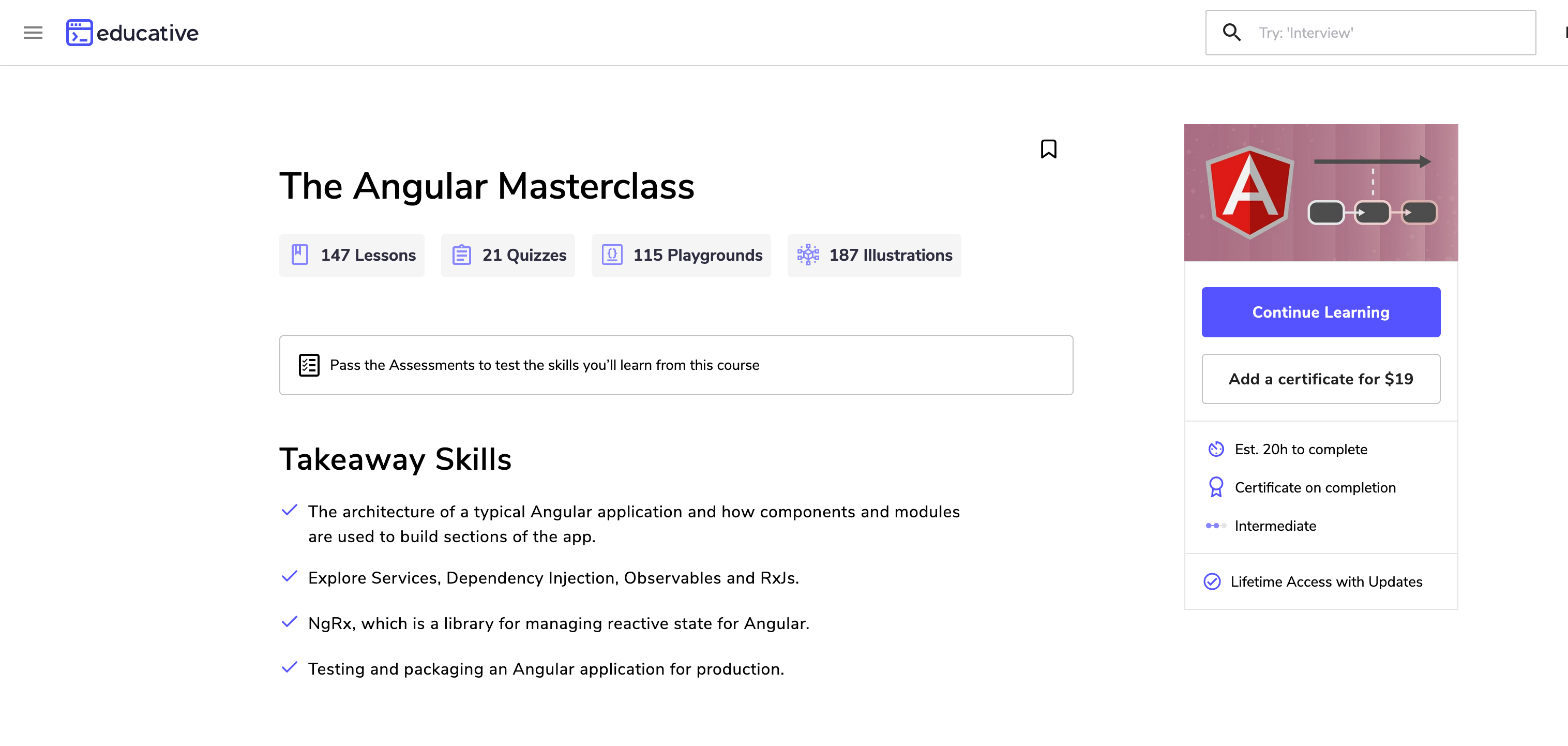The Angular Masterclass
I’m pleased to announce that the wonderful people at Educative.io have turned my book, Getting Started With Angular, into a course. The course is called The Angular Masterclass . The course contains 147 lessons and should take 20 hours to complete.
Course Aims
The main aims of the course are to teach you:
- The architecture of a typical Angular app and how components and modules are used to build up the sections of an Angular app
- Explore Services, Dependency Injection, Observables and RxJs
- Learn about NgRx
- How to test and package your application ready for production
Course Overview
In this course, you will use Angular to build a fully-functional sales team contacts application.
To start things off, you’ll learn about Angular architecture and how components and modules are used to build sections of your application.
In the second section, you’ll dive into routing and navigation, dependency injection, and observables.
In the last part of this course, you will get hands-on experience managing the state of your app as well as testing and troubleshooting. Throughout the course are three different assessments which will be used to test your understanding of the material. By the end, you will have a great new application for your portfolio, as well as a better understanding of how to design an Angular application from scratch.
The team at Educative have done a great job setting out this course, the illustrations are fantastic and really help convery the points I was trying to make in the book.


